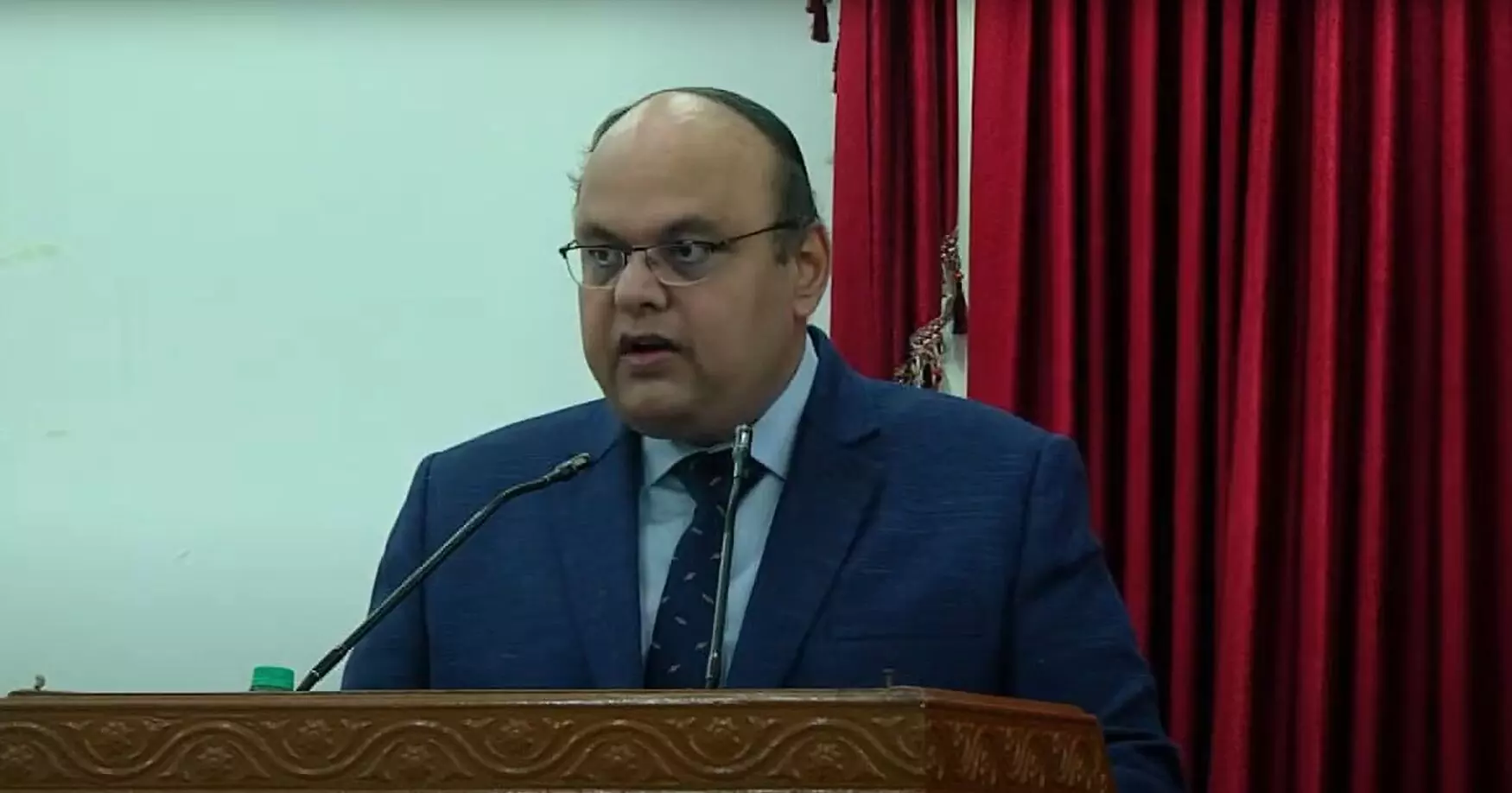
Queer Love Is Not 'Non–Indigenous', India Lacks Adequate Anti-Discrimination Laws: Justice SR Krishna Kumar
 |
|Justice SR Krishna Kumar of the Karnataka High Court has said while delivering a lecture that there is a false dichotomy between Western and Indian ‘values‘ which seek to state that queer love is ‘non–indigenous'. He said that Indian media is yet to question the same.
Justice Kumar delivered the 17th P.G.C Chengappa Memorial Lecture on Friday and spoke on the subject- "Evolution of LGBTQIA+ rights".
"Indian media has yet to question the false dichotomy between Western and Indian ‘values‘which seek to state that queer love is ‘non–indigenous.’ The ‘born this way‘ narrative is thus very often a convenient take since it localises the ‘problem’ in an abstract idea of ‘mindsets’ of people instead of inspecting how discrimination against the queer community is systemic and structural. It offers no insight into the institutional challenges faced by the community", the Judge said.
Justice Kumar also said that the lack of adequate legislation and anti-discrimination laws has prevented any progress after the Navtej judgment of the Supreme Court. "A careful observation of the politico-legal landscape of progressive and developed countries, reveals that India still has a long way to go in ensuring the right to equality and the right to life and personal liberty of the queer community. The very existence of queer people challenges the systemic and structural biases deeply rooted in the cisnormative, heteronormative Indian society", he said.
During his lecture, Justice Kumar explained the difference between sexual orientation and gender identity. He also explained the history of the LGBTQIA+ community in the world and Indian context. Referring to ancient literature, he said, "Many times, "LGBTQIA+" is dismissed as a contemporary phenomenon or an idea of urban elitism; yet, Indian mythology and history paint a very different picture".
"Not only did LGBTQIA+ culture impact mythological texts, it also permeated the culture of our temples. The temples found at the Khajuraho heritage site in Madhya Pradesh, dating back to early medieval India, showcase powerful images of same-sex love. The sculptures found in this grand sacred complex, openly validating homosexuality, suggest that such ideas have been accepted as quite natural and pure in the subcontinent", Justice Kumar said.
The Judge said that in pre-colonial times, the Indian subcontinent was home to a diverse population with its own, unique understanding of sexuality, companionship, morality and love. "Stories, history, myths, and cultural practices in India indicate that what we now term ‘queerness’ was present in precolonial India. It would not be a faithful description of the times to say that queerness was “accepted” by the populace", he added.
He said that despite legal headway, deeply entrenched societal attitudes persist in segments of the population, resulting in the continued stigma and discrimination faced by the LGBTQIA+ community. He also said that familial rejection remains a harsh reality for some, leading to mental health challenges and social isolation, emphasizing the ongoing need for cultural transformation. He said that the reading down of Section 377 of the IPC, while monumental, underscores the pressing need for comprehensive anti-discrimination laws addressing various facets of LGBTQIA+ rights, including workplace discrimination and protection from hate crimes.
Justice Krishna Kumar also discussed the representation of Queers in Indian media. He said that the earliest representations of queer folk in Indian media have been criticised by academicians and scholars who noticed that characters were often queer-coded with no explicit representation. He referred to Deepa Mehta’s movie Fire (1996), Vikram Seth's book The Golden Gate (1986) and the character of “Lajja Shankar Pandey” played by actor Ashutosh Rana in the film Sangharsh (1999). He said that in the 1990s, the representation of queer folk in Bollywood was mostly negative and stereotypical.
"Indian law has taken several strides in recent years towards the recognition of the rights of the queer community and yet has regressive roots that can be traced back to the British Raj", he said. He referred to recent judgments of various Courts on the subject and discussed the judgment of the Apex Court in the Supriya Chakrabarty (same-sex marriage case) in detail.
He said that non-recognition of the right to marry a partner of choice also has an insidious secondary effect, in that it promotes the institution of ‘lavender marriages’. "The term lavender marriage is used to describe a marriage between a man and a woman in which at least one party is gay, undertaken as a marriage of convenience to hide the sexual orientation of one or both partners due to the social stigma attached to those identities", he explained.
Justice Krishna Kumar also said that many Indian corporations have implemented LGBTQIA+ friendly policies, such as providing equal opportunity employment, fostering safe and supportive work environments and creating an equitable workplace. "Within legal frameworks and human rights discourse, the advocacy for LGBTQIA+ rights are firmly rooted in the pursuit of equitable treatment under the law, transcending considerations of sexual orientation or gender identity. Approaching these discussions necessitates sensitivity, and acknowledging the diversity of perspectives shaped by individual beliefs, cultural contexts, and legal frameworks", Justice Kumar said while concluding his lecture.